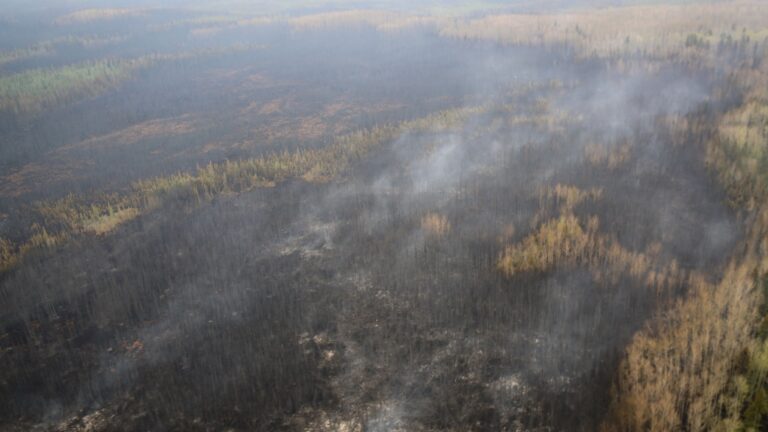At Andrew Lake Lodge, a secluded campground in Alberta’s far northeast corner, owner Dan Wettlaufer is looking forward to welcoming his first visitors of the year this weekend.
But Wettlaufer acknowledged that a wildfire near Fort McMurray could get out of control and pose a threat to this year’s May long weekend and the start of the summer tourist season.
“We don’t have any roads in our operations. It’s all fly-in, fly-out. So depending on what’s going on where we’re starting from, that can definitely impact our ability to do trips. Yes,” Wettlaufer said.
“We have people who have reservations to come through Fort McMurray this weekend. Fortunately, we have some flexibility in terms of being able to reroute through Edmonton or Fort Smith (NWT) if necessary.” There is sex.”
Andrew Lake Lodge attracts travelers from all over the United States, Europe, and Asia who want to experience fishing, hunting, and wildlife viewing in a pristine setting.
The lodge, 400 kilometers northeast of Fort McMurray, is not near the fire that prompted evacuation orders for parts of the area this week.
But Wettlaufer, like many in Canada’s tourism industry, is concerned about the ripple effect that increased wildfire activity will have on his industry. Last year, he had to cancel or reschedule many of his clients’ trips because smoke from the Northwest Territories fires made it unsafe to take off and land on the lodge’s airstrip.
Wettlaufer said he is concerned not only about potential losses related to evacuation orders, travel difficulties and smoky skies, but also indirect effects such as reputational damage to the country as a whole.
“Internationally, when you hear about the wildfires in Canada, you might think the whole country is on fire,” he says.
“We’re trying to change the optics from that standpoint, but it’s hard to do that other than people who know exactly where they’re going (in the country).”
Last year was the worst wildfire season in Canadian history, burning more than 100,000 square kilometers from the West Coast to the Atlantic provinces and the Far North.
One of last summer’s worst fires broke out in B.C.’s Okanagan Valley in August, prompting evacuation orders for more than 35,000 people.
Big White Ski Resort in the area offers mountain biking and a variety of events and festivals during the summer. Executive Vice President Michael Ballingall said he was concerned that predictions of a significant bushfire season in 2024 would scare off some guests.
“We’re already hearing questions about whether it’s a good summer to come (to the Okanagan),” Ballingal said.
“You can never outmarket news.”
Marsha Walden, CEO of tourism marketing Crown corporation Destination Canada, said last year’s headline-grabbing fire season and the fires currently raging in Western Canada have affected the country. He said that it is influencing people’s perception of
However, her organization’s own research shows that only one in 10 potential visitors to Canada would consider canceling their trip entirely due to wildfire activity. She said it was shown.
“Most people will adjust their itinerary and timing,” she says. “So while visitor numbers are down in the short term, people still want to take a vacation.”
Stavros Carlos with the Alberta Tourism Industry Association said the increasing number of wildfires and smoke incidents across the country is a major concern for the industry as a whole.
He said tourism operators have access to up-to-date, accurate information on wildfire activity and air quality so they can cancel events, change operating hours or move activities indoors if necessary. said it was important.
“In some cases, operators may have the opportunity to continue to deliver the experience, albeit with some changes,” Carlos said.
Although the final tally is not yet complete, last summer’s wildfires likely cost B.C.’s Okanagan region millions of dollars in tourism revenue, says Ellen, CEO of the Thompson Okanagan Tourism Association.・Mr. Walker Matthews said.
Walker-Matthews said what makes wildfires so difficult from a planning perspective is their sporadic nature. For example, smoke moves rapidly depending on wind changes, one day it affects one area, and the next day it affects an area 1,000 kilometers away.
“We’re just trying to thoroughly promote what we have and make sure people know what’s going on in real time,” Walker-Matthews said, adding that this year’s Okanagan He added that the weather forecast for the long weekend was “excellent.” . Spectacular” and no fire activity observed.
“There is so much to see and do, but I think tourism can continue to do well as long as we get the facts right.”
– With files from Christopher Reynolds
This report by The Canadian Press was first published May 17, 2024.

